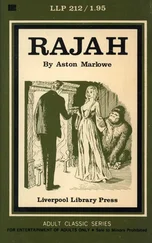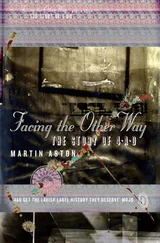William Aston - Shinto
Здесь есть возможность читать онлайн «William Aston - Shinto» — ознакомительный отрывок электронной книги совершенно бесплатно, а после прочтения отрывка купить полную версию. В некоторых случаях можно слушать аудио, скачать через торрент в формате fb2 и присутствует краткое содержание. Жанр: foreign_antique, foreign_prose, на английском языке. Описание произведения, (предисловие) а так же отзывы посетителей доступны на портале библиотеки ЛибКат.
- Название:Shinto
- Автор:
- Жанр:
- Год:неизвестен
- ISBN:нет данных
- Рейтинг книги:5 / 5. Голосов: 1
-
Избранное:Добавить в избранное
- Отзывы:
-
Ваша оценка:
- 100
- 1
- 2
- 3
- 4
- 5
Shinto: краткое содержание, описание и аннотация
Предлагаем к чтению аннотацию, описание, краткое содержание или предисловие (зависит от того, что написал сам автор книги «Shinto»). Если вы не нашли необходимую информацию о книге — напишите в комментариях, мы постараемся отыскать её.
Shinto — читать онлайн ознакомительный отрывок
Ниже представлен текст книги, разбитый по страницам. Система сохранения места последней прочитанной страницы, позволяет с удобством читать онлайн бесплатно книгу «Shinto», без необходимости каждый раз заново искать на чём Вы остановились. Поставьте закладку, и сможете в любой момент перейти на страницу, на которой закончили чтение.
Интервал:
Закладка:
There is a tendency to restrict the word worship to the adoration of deity. Thus, when we speak of ancestor-worship, we are apt to think of it as implying deification. But there is much worship of living and dead men which is perfectly rational, and implies no ascription to them of superhuman powers.
The second, or religious, phase of man-worship involves the assumption that some men are possessed of powers of a kind different from those of ordinary mortals. The mere exaggeration of the human faculties may produce an inferior sort of deity, but no really great man-God can be produced without borrowing some of the transcendent powers of Nature, or in some way identifying him with that increasing cosmic purpose, which from one point of view is tendency and evolution, and from another is a loving Providence. Until this is done a deified king, ancestor, or ghost (if there be such a thing) is a poor specimen of a God. To become a deity of any consequence, the man-God must make rain, avert floods, control the seasons, send and stay plagues, wield thunderbolts, ride upon the storm, or even act as Creator of the world. 19When the practice of deifying men was once established it was enough to entitle them Gods, the term itself implying the possession of those powers which we call supernatural, but which are only so when predicated of men.
Deification of Mikados. – The misunderstanding of metaphorical language is a fertile source of apotheosis. The deification of the Mikados is a case in point. The Mikado is called "the Heavenly Grandchild," his courtiers are "men above the clouds," rural districts are spoken of as "distant from Heaven," that is, from the Imperial Palace. The heir to the throne was styled hi no miko , or "august child of the Sun," and his residence hi no miya , "the august house of the Sun." The native names of many of the Mikados contain the element hiko , or "Sun-child." The appearance in Court of the Empress Suiko (a. d. 612) is compared to the sun issuing from the clouds. Tenshi , or "Son of Heaven," a Chinese term freely applied to the Mikado in later times, is a variant of the same idea, which, it need hardly be said, is known in other countries besides Japan. The Chinese Emperor is said to call the sun his elder brother, and the moon his sister. Images of the sun and moon were depicted on the banners which were borne before him on State occasions. The same practice had been adopted in Japan as early as a. d. 700, and there is a relic of it at the present day in the Japanese national flag, which is a red sun on a white ground. 20The ancient kings of Egypt called themselves earthly suns. Our own poet Waller, addressing James II., says: -
To your great merrit given,
A title to be called the sonne of Heaven.
Let us not pass by these metaphors with a disdainful smile, as mere unsubstantial poetic fancies. They are more or less rude attempts to give expression to the very important truth that the benefits which a nation derives from the rule of a wise and good sovereign are comparable to the blessings of the sun's warmth and light. As Browning, in 'Saul,' has well said: -
Each deed thou hast done
Dies, revives, goes to work in the world, and is as the sun
Looking down on the earth, though clouds spoil him, though tempests efface,
Can find nothing his own deed produced not, must everywhere trace
The results of his past summer prime-so each ray of thy will,
Every flash of thy passion and prowess long over, shall thrill
Thy whole people, the countless, with ardour till they too give forth
A like cheer to their sons, who in turn fill the south and the north
With the radiance thy deed was the germ of-.
It may be objected that it is contrary to the general law of human development to make the higher metaphorical conception precede the lower physical one. It is no doubt true that the physical idea of fatherhood must come before the metaphorical use of this relationship. But it does not follow that when once the metaphor is arrived at, it may not relapse into its original physical acceptation. The forces which produce religious progress act by waves, with intervals of stagnation or retrogression. Even when the general religious condition of a country is advancing it will be found that the lower popular stratum of thought consists less of undeveloped germs of future progress than of a breccia of the debased or imperfectly assimilated ideas of the wise men of preceding generations. In this retrograde movement a large part is played by the invincible tendency of the vulgar to give metaphors their literal signification. This, I take it, is the source of the numerous actual children or descendants of the Sun and other deities who are found all over the world, in Greece, Peru, Japan, and elsewhere. The sequence of ideas may be thus represented: -
I. The King or sage is like the Sun.
II. He is (rhetorically) a Sun, or the Sun's brother or offspring.
III. He is actually descended from the Sun in the n th generation, the intermediate links of the genealogy being a , b , c , d , &c., and he is therefore himself a divinity.
Herbert Spencer, in his 'Sociology,' says: -
"There are proofs that like confusion of metaphor with fact leads to Sun-worship. Complimentary naming after the sun occurs everywhere, and where it is associated with power, becomes inherited. The chiefs of the Hurons bore the name of the Sun; and Humboldt remarks that 'the "Sun-Kings" among the Natches recall to mind the Heliades of the first eastern colony of Rhodes.' Out of numerous illustrations from Egypt may be quoted an inscription from Silsilis-'Hail to thee! King of Egypt! Sun of the foreign peoples … Life, salvation, health to him! he is a shining Sun.' In such cases, then, worship of the ancestor readily becomes worship of the Sun… Personalization of the wind had an origin of this kind."
"Nature-worship, then, is but an aberrant form of ghost-worship."
Surely this is an inversion of the true order of things. Why do kings bear the name of Sun, or child of the Sun? Is it not because the Sun is already looked upon as a glorious being (a God?) with whom it is an honour to be associated? Herbert Spencer himself speaks of " complimentary naming after the Sun." The Chinese call deification hai-ten , or "matching with Heaven," showing that with them at least it is the man who acquires his divinity by being placed on a level with Heaven, not vice versâ . Worship of the Sun must be anterior to the very existence of Mikados, and there are certainly more substantial reasons for it than the transfer to him, suggested by metaphorical language, of the reverence paid to human sovereigns or ancestors.
The deification of living Mikados was titular rather than real. I am not aware that any specific so-called miraculous powers 21were authoritatively claimed for them. In 645 a Japanese minister, addressing some envoys from Korea, described his sovereign as "the Emperor of Japan, who rules the world as a manifest deity." The same official recognized the Korean princes as "Sons of the Gods." The Mikado Keikō, admiring the strength and courage of his son Yamatodake, says to him: "Whereas in outward form thou art our child, in reality thou art a God." The Mikados called themselves, in notifications and elsewhere, Akitsu Kami , that is, manifest or incarnate deities, and claimed a general authority over the Gods of Japan. Yūriaku conversed on equal terms with the God Hito-koto-nushi. He expected obedience from the Thunder-God, but speedily had cause to repent his audacity. 22
The honours paid to deceased Mikados stand on a somewhat different footing. There is little, however, in the earlier period of Shinto to distinguish the respect shown to deceased Mikados from the customary observances towards the undeified dead. The Kojiki and Nihongi have hardly a trace of any practical recognition of their divinity. We are told in the Nihongi (a. d. 679) that the Mikado Temmu did reverence to the tomb of his mother who had died eighteen years before. In 681 worship was paid (no doubt by the Mikado) to the august spirit of the Mikado's grandfather (or ancestor). There is nothing in these notices to show that divine worship is intended. An oath made by Yemishi or Ainus, when tendering their submission in 581, is more to the point. They pray that "if we break this oath, may all the Gods of Heaven and Earth, and also the spirits of the Mikados destroy our race." Still it must be remembered that the author of the Nihongi was a profound Chinese scholar, and that his work is deeply tinctured with Chinese ideas. I should not be surprised to find that the above oath was simply copied from some Chinese book.
Читать дальшеИнтервал:
Закладка:
Похожие книги на «Shinto»
Представляем Вашему вниманию похожие книги на «Shinto» списком для выбора. Мы отобрали схожую по названию и смыслу литературу в надежде предоставить читателям больше вариантов отыскать новые, интересные, ещё непрочитанные произведения.
Обсуждение, отзывы о книге «Shinto» и просто собственные мнения читателей. Оставьте ваши комментарии, напишите, что Вы думаете о произведении, его смысле или главных героях. Укажите что конкретно понравилось, а что нет, и почему Вы так считаете.












